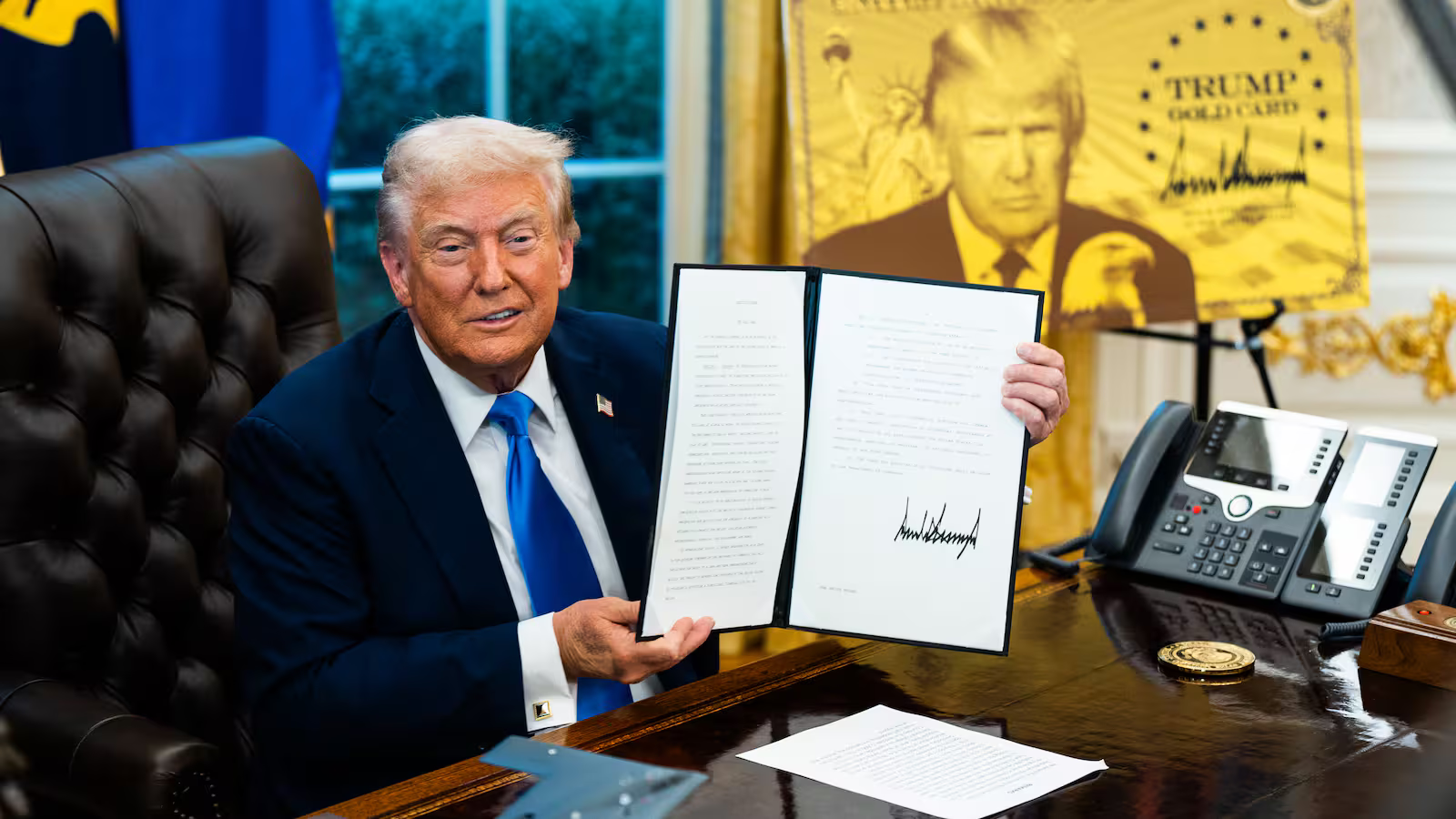
Trump administration imposes $100,000 H-1B visa fee, sparking economic concerns and confusion
A new $100,000 fee for H-1B visas, aimed at prioritizing American workers, has drawn criticism from economists and caused confusion among foreign professionals and major tech companies.
22 sept 2025 - 13:23 • 4 min read
In a move that has sent ripples through the tech industry and raised economic alarms, the Trump administration has implemented a new $100,000 fee for H-1B visas, a significant increase from the current cost.
President Donald Trump signed a proclamation on Friday introducing the substantial application fee, an increase of 60 times the previous cost. The stated intention behind this policy is to encourage companies to hire more American workers. However, economists and industry leaders have voiced concerns that this measure could hinder U.S. economic growth and lead to a loss of vital human capital.
Economists have warned that the increased fee could negatively impact the U.S. economy. Atakan Bakiskan, an economist at investment bank Berenberg, characterized the move as an example of “anti-growth policymaking.” He suggested that making it prohibitively expensive for companies to attract foreign talent, and potentially forcing international students to leave the country after graduation, would result in a “brain drain” that would weigh heavily on productivity.
Berenberg recently revised its forecast for U.S. economic growth downward from 2% to 1.5%, and Bakiskan indicated that this figure might prove optimistic if the new policy remains in place. He further cautioned that a combination of eroding trust in institutions, loss of human capital, tariffs, persistent uncertainty, and unsustainable fiscal policies could increase the risk of a financial crisis in the U.S. and lead to a weaker dollar and higher long-term yields.
Jim Reid, a market strategist at Deutsche Bank, noted that the new application fee generated significant uncertainty over the weekend for those reliant on the H-1B program.
Confusion and Disruption for Professionals
The announcement triggered immediate concern and confusion, particularly among foreign professionals in the U.S. on H-1B visas. Some businesses in Silicon Valley reportedly advised staff not to travel outside the country.
One software professional, identified as Rohan Mehta, who has lived in the U.S. with his family for 11 years, cut short a trip to India to be back before the fee increase took effect. He spent over $8,000 on flights within an eight-hour period to secure his return, fearing he would be unable to come back to his home in the U.S. if he missed the deadline.
“I’m regretting the choices I’ve made in life,” Mehta said. “I gave the prime of my youth to working for this country [the U.S.] and now I feel like I’m not wanted.” He expressed anxiety about potentially having to uproot his family and start over in India.
The White House later clarified that the new $100,000 fee would be a one-time payment and would only apply to new visa applicants, not current visa holders or renewals. White House Press Secretary Karoline Leavitt posted on X stating that those outside the country would not be charged to re-enter and that H-1B visa holders could leave and re-enter to the same extent as before.
Despite the clarification, initial confusion had already spread widely, with many H-1B visa holders from India, who constitute the vast majority of recipients, refraining from speaking to the BBC due to employer policies or general unease.
Impact on Major Companies and India
Major technology companies rely heavily on the H-1B visa program to recruit engineers, scientists, and coders, with many of these professionals coming from India. Amazon was reported to have the highest number of workers on H-1B visas in the first half of 2025, followed by Microsoft, Meta Platforms, Apple, and Google.
India has been the largest beneficiary of the H-1B program, accounting for 71% of approved visas last year. The Indian government responded to the new fee by warning of “humanitarian consequences” due to potential disruptions for families. India's commerce minister, Piyush Goyal, stated, “They are also a little afraid of our talent. We have no objection to that.”
Following the news, the share prices of Indian tech giants Infosys and Tata Consulting Services saw a decline of approximately 3%, as these companies utilize the H-1B program to deploy thousands of Indian workers to client sites in the U.S.
The H-1B program annually offers 65,000 visas for employers in specialized fields, with an additional 20,000 visas available for individuals with advanced degrees. The new fee structure introduces significant financial challenges for companies seeking to utilize this talent pool.